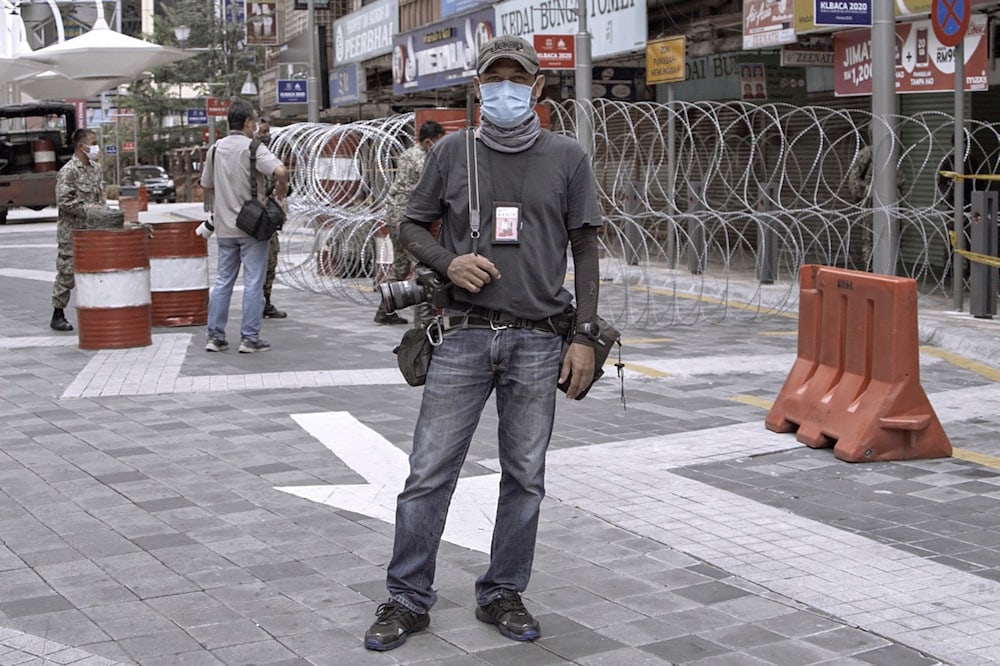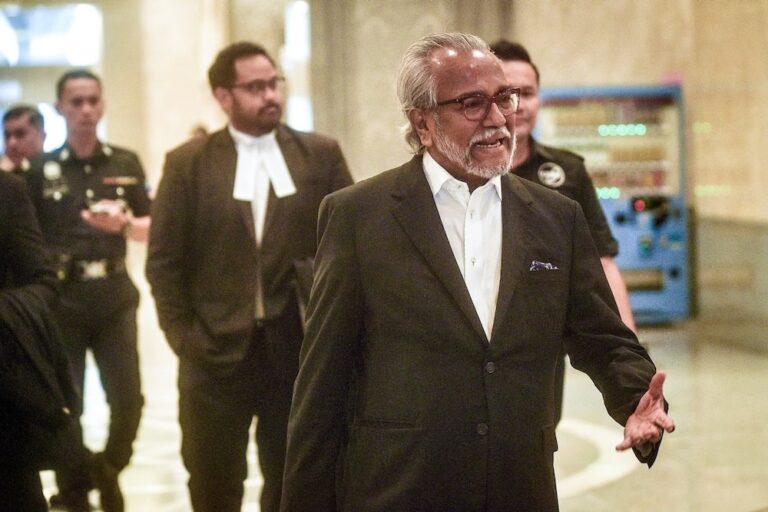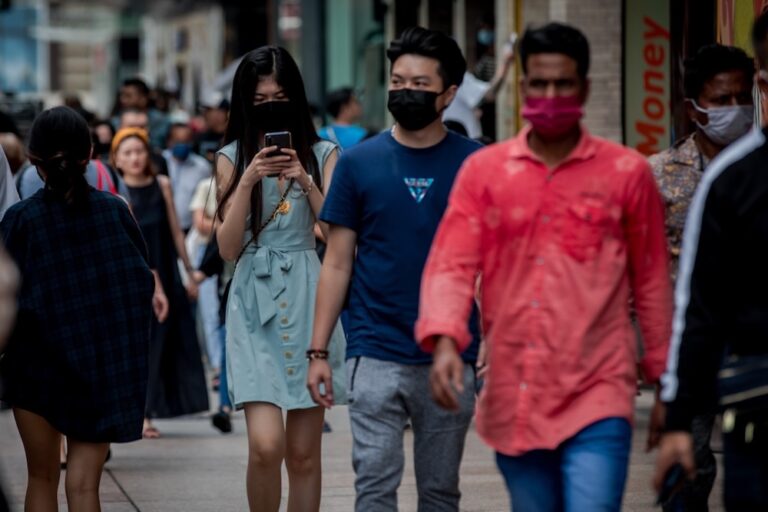The Centre for Independent Journalism, Gerakan Media Merdeka and the National Union of Journalists Malaysia highlighted several issues that have a chilling effect on media freedom in Malaysia.
This statement was originally published on cijmalaysia.net on 3 May 2021.
Memorandum to the Minister of Communications and Multimedia in conjunction with World Press Freedom Day 2021
1. The Centre for Independent Journalism (CIJ), Gerakan Media Merdeka (GERAMM) and the National Union of Journalists Malaysia (NUJM) are deeply concerned with the status of media freedom in Malaysia and the related trend of limiting access, harassment and intimidation against media by the authorities.
2. We are further alarmed with Malaysia’s deterioration in the Reporters Without Border’s (RSF) annual press freedom index. Malaysia’s press freedom index is now down 18 places at 119 (out of 180 countries ranked) just a year after recording one of its best rankings at 101st place. The recent rating comes as no surprise for several reasons as the political turmoil since the Perikatan Nasional (PN) coalition took power in March 2020 has acted as a barrier to the media taking on its role independently. Further, there is an ongoing crackdown on journalists and media agencies for their reporting, especially during the COVID-19 pandemic, and specifically using repressive laws that continue to stifle press freedom.
3. The role of the media has never been as critical as now with the emergence and spread of COVID-19. The media play a key role in ensuring that we are able to sieve through high volumes of research and information flow and provide the necessary updates on disease tracking and live dashboards as well as on the key policies adopted by the Malaysian government. Media continue to cover news on geographical lockdowns in Malaysia, social and economic impacts of COVID-19, countering unscientific cures and unverified medicines endorsed by the politicians and fake doctors which prove harmful, all of which at the same time work towards containing public alarm.
4. We wish to highlight the following critical issues and its chilling effect on media freedom in Malaysia:
a. Economic viability of the media
Malaysian media, especially traditional print media, had already been facing financial difficulties before the COVID-19 pandemic due to the decrease in news subscription and advertising revenues. This became more severe with the spread of the COVID-19 pandemic and led to a trend of major downsizing within the media industry in Malaysia.
Journalists have been severely impacted by the closure or downsizing of many media companies. A total of 400 journalists had lost their jobs in the past year. A spate of retrenchments since March 2020, when the first Movement Control Order (MCO) was announced, also resulted in NUJ’s membership, from 8 mainstream Malaysian newspapers, shrinking from about 1,000 to only about 500 as of last month.
To date, the government’s COVID-19 stimulus and recovery packages have yet to concretely address the dire economic impact faced by media.
b. Health and safety of media
There is high reliance on media as the main communications channel that is critical in promoting adaptive responses that foster appropriate approaches to health and hygiene practices and adherence to preventive and mitigating measures in dealing with COVID-19.
However, journalists and camera crew are at heightened risk due to their role as frontliners. They are frequently exposed to infection due to lackadaisical approaches and lack of adherence to standard operation procedures (SOP) and social distancing at certain events organised by government officials.
c. Restrictions of access for reportingPress conferences after high-level briefings by senior ministers continue to be restricted to only “official” State-owned media. This sidelines more independent media, including news portals which operate exclusively online, which are often more critical of the State and its policies. Last year we also saw further restrictions in the access to several parliament or state assembly sittings. Access was given to only state media or given to limited media selected without any clear criteria or transparency. In all these instances, COVID-19 was cited as the reason for these disproportionate and discriminatory restrictions.Lack of access to official events by most media would mean that the news that is being reported is monopolised by either state media or state-friendly media, thus, only reflecting the tone and messages put forth by the government without critical analysis or balanced reporting. It is indicative of the government’s intent to control the narrative and news around their actions, or lack thereof.d. Media crackdowns
Last year saw several journalists and media agencies investigated, harassed and subjected to legal action by the State for their critical reporting, dissenting views or platform. High-profile cases include that of former South China Morning Post Correspondent (SCMP) Tashny Sukumaran, CodeBlue Editor-In-Chief Boo Su-Lyn, Malaysiakini and its Editor-In-Chief, Stevan Gan, Gerakbudaya and the authors of “Rebirth” and Al Jazeera.
This list does not include the numerous instances of online harassment by ministers against journalists who allegedly misreported the news. Read together, these can be seen as a deliberate and concerted series of actions intended to stifle media freedom.
e. Use of repressive laws to silence media
Various repressive and archaic laws were used against the media and journalists last year. These laws include Section 233 of the Communications and Multimedia (CMA) Act 1998, the Sedition Act 1948, Section 504 of the Penal Code, Section 505 of the Penal Code and the Printing Presses and Publications (PPPA) Act 1984. Other laws include Section 203A of the Penal Code and Section 114A of the Evidence Act 1950.
The trend is often to target and intimidate the media using these laws when the government is portrayed in a negative light.
5. Hence, we demand the following from the government:
#1 Establish a Media Resilience Fund to support and sustain the livelihood, practices and operations of media personnel during COVID-19 pandemic. The Fund can offer small grants for individuals or small media organisations to offset or recoup financial losses or to adapt their practices and explore new operating models in this time of disruption and economic crisis.
#2 Expedite and guarantee equal access to vaccination for media personnel. The government must proceed with the vaccination for media by May 2021 through an equal and transparent process of registration of all journalists and crew at the frontline. Aside from full-time staff of media outlets, it must also include independent journalists and part-timers, and in all geographical locations in Malaysia.
#3 Guarantee free and equal access to all media, regardless of their affiliation, medium of practice or geographical locations. There shall be no arbitrary or discriminatory restrictions of access to government press conferences or events as well as to any upcoming State initiatives, including but not limited to parliament and state assembly sittings, open court and public hearings. COVID-19 must not be used as an excuse to undermine media access.
The State must also guarantee that all necessary measures on social distancing and SOPs are adopted and adhered to during these events.
#4 Drop all investigations and stop all acts of intimidation and adverse actions against the media and respective journalists.
#5 Place an immediate moratorium on the use of repressive laws and the State to adopt necessary plans, without delay, to review and amend or repeal these laws, including Section 233 of the Communications and Multimedia Act 1998, the Printing Presses and Publications Act 1984, the Sedition Act 1948, and the Official Secrets Act 1972, among others, and;
#6 Move ahead with the establishment of the Malaysian Media Council as a transparent and independent self-regulatory body for the industry. Having a media council in place will avoid the State and its agencies from becoming the sole arbiter of truth or arbitrarily censoring or punishing the media for reporting that is critical of the State.
6. The State must promote media freedom and create an enabling environment for the media to function with independence and with no fear of repercussion for carrying out their reporting functions. This would require the commitment of the government to go beyond rhetorics and actually implement the promises and pledges that have been made by the Minister of Communication and Multimedia iterating that the current government will promote media freedom and adopt measures to amend laws that restrict media freedom.
Jointly issued by CIJ, GERAMM and NUJM



